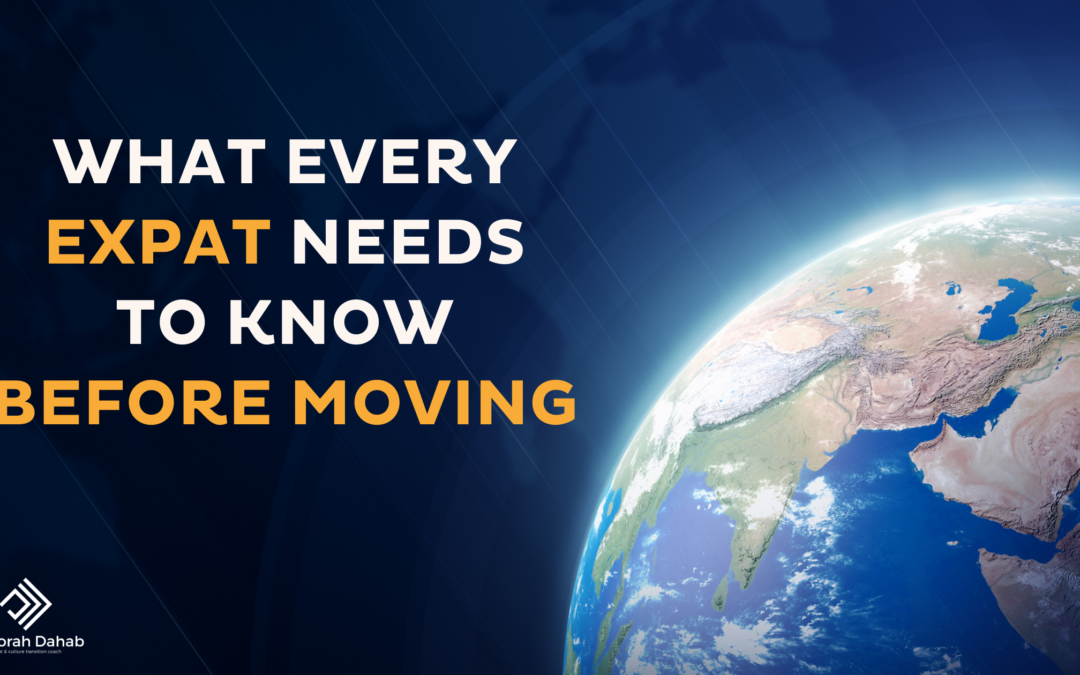
What Every Expat Needs to Know Before Moving
Preparing for a move abroad is an exciting journey, but it can also feel overwhelming. I’ve moved more times than I can count and every single time I found myself overwhelmed, and many times by things I thought I had totally mastered!
Beyond the practicalities of visas, housing, and logistics, there are emotional and mental preparations that can make or break your experience. Based on my own expat journey and insights from working with clients for almost a decade, here are three essential things every expat needs to know before making the leap.
1. Know Your "What For"
Understanding why you want to move is important, but it’s only the beginning. To truly prepare for a successful transition, you need to dig deeper and define your what for. This goes beyond simply listing reasons for leaving and focuses on what you want to achieve with this move. Ask yourself:
- What are my goals for this new chapter?
- How does this move align with my long-term vision?
- What do I want to accomplish personally and professionally?
Knowing your what for helps you stay focused and motivated when challenges arise. It serves as your guiding star, reminding you of the purpose behind your decision and helping you make choices that align with your bigger picture.
I have a video that can help you tap into your ‘what for’, you can check it out here.
2. Routines Are Your Best Friend
One of the most disorienting aspects of moving abroad is how much changes—your surroundings, the language, the food, and even small daily habits. To maintain a sense of stability amid the chaos, establish routines as quickly as possible.
Simple habits like waking up and going to bed at the same time, drinking water regularly, and taking breaks during the day can help ground you. These routines create a sense of normalcy and provide structure when everything else feels unfamiliar. They also contribute to a healthier lifestyle, giving you the energy and resilience to adapt to your new environment.
These routines are especially important when moving with kids. If they practice a sport, or play an instrument, make sure they engage in this activity as soon as possible.
Loneliness is one of the most common challenges expats face, and it often stems from unrealistic expectations about how quickly you’ll build a social network. Friendships take time and effort, especially in a new cultural context. Be patient with yourself and others.
Understand that the deep, meaningful friendships you’re used to may not form overnight. Think about how long it took to build your existing friendships—they likely developed over years, not weeks. Start by taking small steps, such as joining local groups, attending events, or participating in activities that align with your interests. Don’t take rejection or slow progress personally; making friends is a gradual process that requires persistence and an open mind.
Having a strategy to make friends is crucial for this new phase and start connecting with people in advance. Use social media, online courses or even international parents’ groups if you have kids going to an international school. By starting early, you’ll get an excellent headstart when you arrive and already have some meaningful connections to help you.
Moving abroad is a life-changing decision that comes with incredible opportunities and challenges. By clarifying your what for, establishing routines, and approaching social connections with patience, you’ll set yourself up for a smoother and more fulfilling transition.
Imagine having a community of likeminded people who know what you’re going through!
In the Expat Journey Program you’ll find a pre-move roadmap and a welcoming community that will make the overwhelm feel like a distant memory! Join us here.




